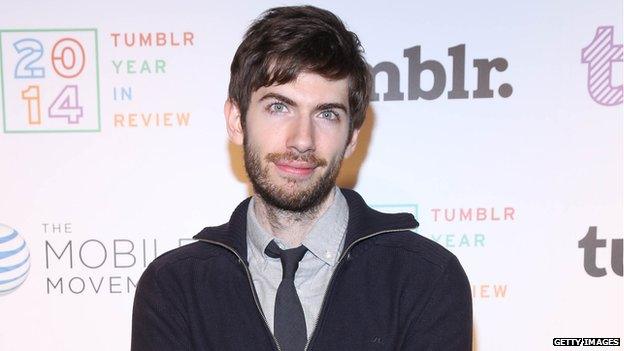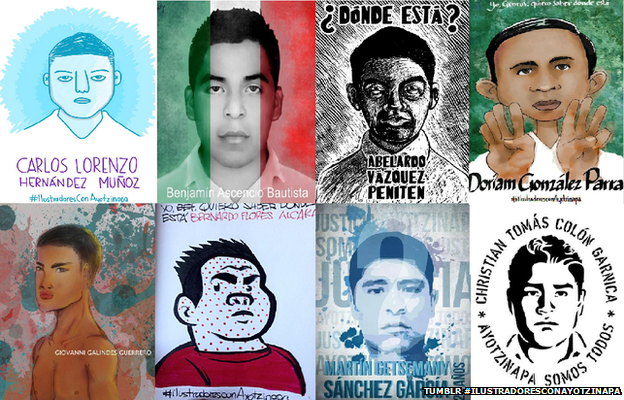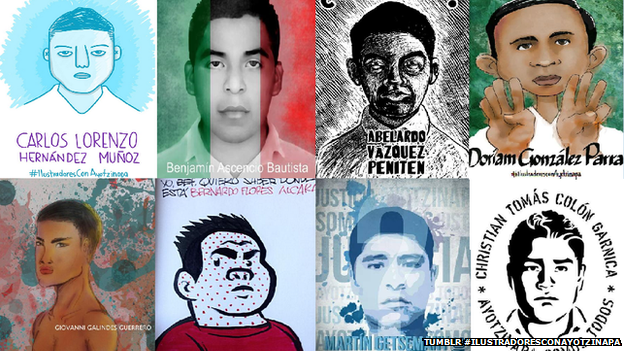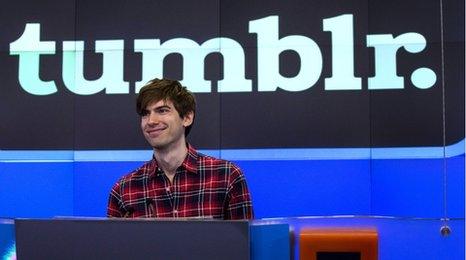Tumblr CEO: Focusing on storytelling and self-expression
- Published

Is Tumblr the most expressive social platform? Founder and CEO David Karp reckons so. He says Tumblr is the place where people can reveal their true identity and creativity. And while he admits that other sites like Facebook and Twitter have been pivotal in bringing about social and political change, Karp argues that Tumblr - owned by Yahoo - has a different, more reflective, role to play.
The site has more than 213 million registered users and quite a young user base - over half of visitors are under 25. And while it's popular in the UK, Brazil and Australia, the US is still one of its biggest markets, accounting for 40% of traffic. BBC Trending's Anne-Marie Tomchak caught up with David Karp.
David, there were changes made to Tumblr in 2014. Tell us about some of the latest developments?
We are constantly working to stretch the canvas to make Tumblr a bigger, more expressive platform for more talented and aspiring creators. So some of the really exciting stuff that we got to in 2014 was around mobile expression. We also did some really innovative stuff in video.
Is Tumblr's goal to become a direct competitor of YouTube?
Absolutely not. We just want Tumblr to be a better place for all video - a better place for those YouTube creators to share their stuff, and a canvas where those creators also have the opportunity to throw their videos directly onto Tumblr.
Why would someone go to Tumblr for video if they can already do it on YouTube?
One of the reasons we've had such a community of creators is because Tumblr is a place where you can build something from scratch with complete control of how you present yourself and how you put your work out there into the world. You're not limited to just your videos or photos. There's good reason to use lots of platforms, but Tumblr for many of these creators ends up being their true identity on the web and it gets syndicated out to a lot of these networks.

Illustrations of 43 missing Mexican students were part of one of the most striking campaigns trending on Tumblr this year
Social media has brought about real cultural, political and social change. Where does Tumblr fit into that?
The thing I get most excited about in how social media is facilitating change and the role Tumblr is playing in it. There's no question these social tools have done a remarkable amount for organising large groups of people. We saw that with movements like Occupy Wall Street, Ferguson, and the Arab Spring - world-changing movements that have been organised entirely through social media and perhaps could not have been organised at this scale without social media.
What really delighted and surprised us is that these movements were being organised through real-time social platforms like Facebook and Twitter. But the conversation, the narrative, the storytelling really developed on Tumblr.
Tumblr is perhaps not the spot that people go to see where the marches or rallies are going to be happening in their city, or what's going on right this second, or what the government or police are doing to respond to something. What is really coming to life on Tumblr is the conversation around where these movements go. What happens after the people have been heard, after these causes build up real momentum and they have the opportunity to change things.
So you're saying people take stock on Tumblr in the aftermath of major news events?
They absolutely do. It's the place that's able to take these issues from a moment of action to a real conversation, a real dialogue about what comes next. This is something that we saw in a really big way with "net neutrality", which is a really obtuse issue, that frankly most of the people that it really affects didn't really understand. [Eds note: here's a great explainer about it from BBC technology reporter Jane Wakefield]
Tumblr ended up being a place where that narrative was able to unfold in such an expressive, accessible way that we were able to drive 130,000 calls to US Congress. Millions of emails were sent. Millions of people participated in this movement.
The disappearance of 43 students in Mexico - whose portraits were posted on a Tumblr page - and shoplifters showcasing their exploits, are among the Tumblr-related stories we've covered on BBC Trending. What are the challenges of regulating content on the site?
This is a challenge for all of these platforms. I think the hardest thing is holding true to your convictions and not compromising the whole network when something turns up that turns your stomach. This is why we've worked so hard over years to get those policies just right. Something I'm really proud of is that we've stuck to those same principles of free expression while still working really hard to protect children on our network to make sure that Tumblr doesn't end up being a pernicious, intensely negative place.
Reporting by Anne-Marie Tomchak
You can follow BBC Trending on Twitter @BBCtrending
All our stories are at bbc.com/trending
- Published29 October 2014

- Published5 March 2014

- Published4 May 2014

- Published25 July 2013
